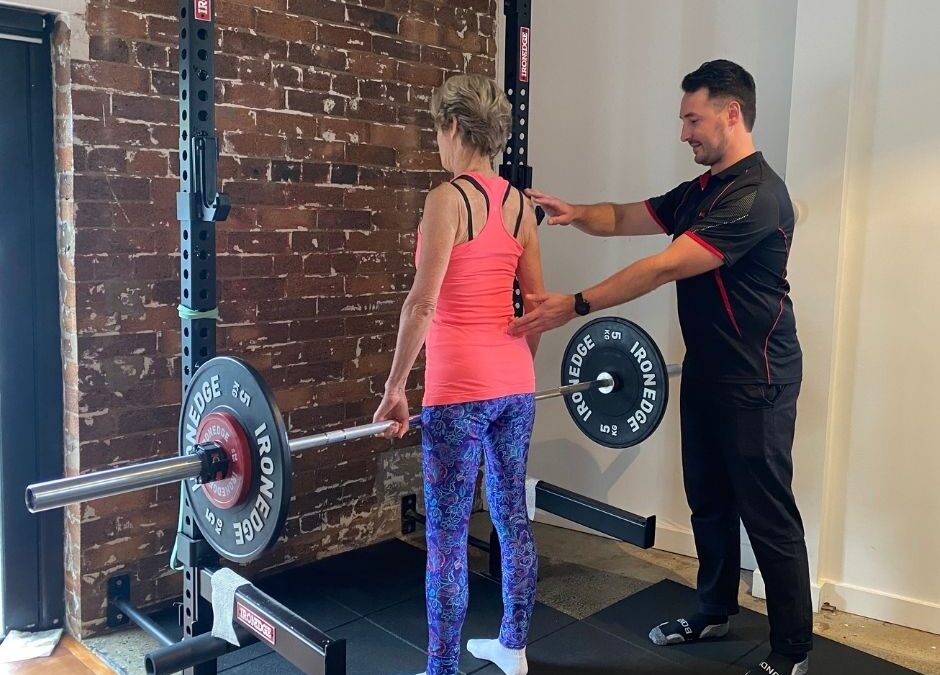Exercise Consistency is Key
In the pursuit of a healthier and more active lifestyle, consistency is incredibly important. Amidst all the fitness trends and fads, one fact is true: being consistent with exercise is critical for achieving and sustaining your fitness goals. Whether your aim is to lose weight, build muscle, boost cardiovascular health, or simply feel better, the importance of consistency in exercise cannot be overstated. In this article, we’ll delve into why staying consistent with your exercise routine is crucial for long-term success.
Physical Adaptations Need Time
Our bodies are remarkable in their ability to adapt, but this adaptation requires time. Regular physical activity enhances your muscles, cardiovascular system, and overall fitness levels, but this progress occurs gradually. It necessitates a consistent effort over an extended period. For example, weightlifting prompts muscle growth and strength gains by causing micro-damage and repair. Yet, this adaptation process unfolds over weeks and months of consistent training. Skipping workouts or maintaining an irregular exercise schedule can disrupt this progress and hinder your overall fitness objectives.
Building Habits and Routines
Consistency in exercise helps establish healthy habits and routines. When exercise becomes a regular part of your life, it ingrains itself into your daily schedule, just like brushing your teeth or having meals. Over time, it becomes second nature, reducing the mental effort required to motivate yourself for a workout. Missing workouts or taking prolonged breaks disrupts this routine, making it challenging to regain momentum. Consistency fosters a positive feedback loop where exercise becomes an integral part of your daily routine, and your routine, in turn, supports your exercise habits.
Tracking Progress
One of the most motivating aspects of exercise is seeing tangible progress. Be it lifting heavier weights, running farther, or noticing changes in your body composition, tracking your improvements can boost motivation and confidence. Consistency is vital for accurate progress tracking because it provides a steady baseline for comparison. When exercise is sporadic, progress remains elusive, and it becomes difficult to assess the effectiveness of your efforts. Regular workouts enable you to set and achieve goals, offering a sense of accomplishment that fuels your ongoing commitment.
Mental and Emotional Benefits
Exercise isn’t just about physical health; it profoundly impacts mental and emotional well-being. Regular physical activity releases endorphins, the body’s natural mood elevators, while reducing stress hormones like cortisol. Consistency in exercise ensures a steady supply of these positive chemicals, improving your mood, reducing anxiety, and enhancing overall mental health. Furthermore, the discipline required to maintain a consistent exercise routine can have a ripple effect, improving your ability to set and accomplish goals, manage stress, and maintain a positive outlook on life.
Long-Term Health and Disease Prevention
Exercise plays a pivotal role in long-term health and disease prevention. Consistent physical activity can lower the risk of chronic diseases such as heart disease, diabetes, and certain cancers, and help maintain a healthy weight, blood pressure, and cholesterol levels. However, these health benefits aren’t a one-time achievement; they depend on ongoing effort. Skipping exercise for extended periods can reverse these positive effects, underscoring the importance of consistency in safeguarding your health.
Conclusion
Consistency is the key to any successful exercise regime. It distinguishes between fleeting results and enduring success, between sporadic attempts and lasting transformation. By making exercise a habit, you can find a sustainable routine that works for you and only then can you see results. Whether it’s a daily walk, regular strength training sessions, or a weekly yoga class, your path to success hinges on your dedication to making exercise a steadfast and enduring part of your life.
Do you have any questions?
Call us on (03) 9857 0644 or (07) 3505 1494 (Paddington)
Email us at admin@mdhealth.com.au
Check out our other blog posts here
Our clinical staff would be happy to have chat if you have any questions.
Take the first step to a healthier you!
Would you prefer for someone to contact you regarding booking your Initial Physiotherapy appointment, Initial Exercise Physiology, Initial Osteopathy session or FREE Full Body Assessment*?
Or do you have any other enquiry about our services at MD Health?
Please fill in this form and someone from MD Health will be in touch with you soon.
Alternatively please call us on 03 9857 0644 (Kew East), 03 9842 6696 (Templestowe), 03 8683 9442 (Carlton North) or 07 3505 1494 (Paddington) to book now!
*Please note only the Full Body Assessment is a FREE service. The Full Body Assessment is for new clients at MD Health or returning clients who haven’t been in for 6 months or longer who intend to particpiate in our 13 Week Clinical Pilates Program**.
For all new clients who wish to come in for a one-off, casual or adhoc basis for Physiotherapy or Exercise Physiology the Initial Physiotherapy or Initial Exercise Physiology appointment is a paid service.
** The 13 Week Clinical Pilates Program at MD Health is not a lock in contract and you are not required to attend for the full 13 weeks if you do not wish.
This site is protected by reCAPTCHA and the Google Privacy Policy and Terms of Service apply.




